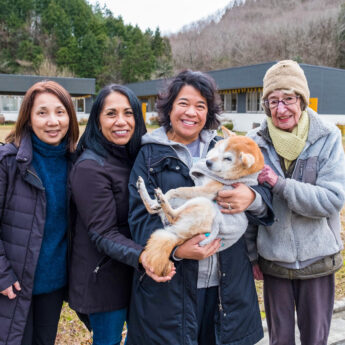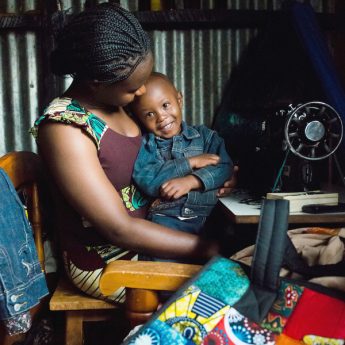No one likes to think of children suffering. But while the children and infants of developed nations such as Japan are largely spared the risks of famine and disease that are rife elsewhere in the world, they remain vulnerable to mistreatment. As a way of making the population at large wake up to this fact, since 2004 a Child Abuse and Neglect Prevention campaign has been held each November.
Abuse and neglect of children in Japan are growing problems with which government bodies and agencies, as well as communities are struggling to deal. According to the National Police Agency, more than 30,000 cases of child abuse were reported in the first half of 2017 alone. This marks the 12th consecutive annual increase in the number of reported child abuse cases in the country.
Despite having signed the UN Convention on the Rights of the Child in 1994, Japan sadly has one of the poorest records among developed countries in dealing with the issue of child abuse. As a result, thousands of children around the nation are vulnerable and at risk.
More help needed
There have been, since the Edo era, some strong cultural values—such as politically motivated marriages and the adoption of boys to perpetuate family lineages—that partly explain the still commonly held view that children are the property of their parents.
In 2000, the Child Abuse Prevention Law was passed, allowing child welfare investigators to enter a home where abuse was suspected and, if necessary, remove the child.
However, parental consent was required to take these steps and, when consent was not given, child guidance centres were obliged to involve family courts to override parental authority.
While the law means that citizens are obliged to report suspected abuse to local authorities, the legislation does not provide the child guidance centres with the authority to mandate family counselling or provide resources for the treatment of children and parents aimed at, where applicable, reuniting families in the case of abuse.
This has resulted in more than 40,000 children spending long periods of time living in institutions across Japan. The problems are further compounded by the nation’s lack of alternative care, such as foster homes, or adoption, which is not widely condoned by Japanese society.
Several Human Rights Watch reports have highlighted the plight of these children, many of whom live in understaffed institutions where they often must endure cramped conditions, bullying, violence and social stigma.
Save the children
Last year saw several important revisions made to the Child Welfare Law. Child guidance centres now have stronger powers to investigate suspected abuse, even if parents refuse them permission to do so. Further, teachers, doctors, solicitors and social workers are required, by law, to report suspected or confirmed cases of child abuse.
Yet, reporting only extends to the child’s immediate or extended family, providing de facto immunity for abusers such as teachers. In these cases, the ultimate decision regarding what is done, as well as if and what punishment is meted out, are all determined by the local Board of Education.
But encouragingly, the Ministry of Education, Culture, Sports, Science and Technology has requested funding in 2018 to place all licensed teachers in a national database, to include disciplinary records regarding such infringements as sex offences. The documentation will be shared nationwide, bringing Japan into line with many other nations around the world.
In a similar vein, on 4 April, 33 municipalities and 13 civil society organisations gathered to establish Adopt a Child Day, to promote adoption and support for infants growing up in childcare institutions.
While these are encouraging changes, it is important to remember that, in 2016, there were 122,578 instances of abuse handled by the child guidance centres. Of these cases, 63,187 were the result of emotional abuse, 31,927 physical abuse, 25,842 neglect, and 1,622 sexual abuse.
While such statistics can often be difficult to grasp, it is important to remember that, behind each of these numbers, is a child who has suffered unnecessarily.
Support
As we observe the month of the Child Abuse and Neglect Prevention campaign, we ask for your support to stop child abuse before it begins. If you suspect or know of a child who has been or is being abused, do not hesitate to take action. A call to the police or the National Child Protection Hotline on 189 (Japanese only) is an excellent way to protect at-risk children.
TELL provides a variety of services around the issues of child abuse in both English and Japanese. They include individual counselling for the child and the family, with a view to preventing, or ensuring recovery from abuse; workshops for teachers and organisations in Japan’s child protection system; and information on how to identify children at risk. TELL’s Lifeline also provides support and information on resources in Japan.






